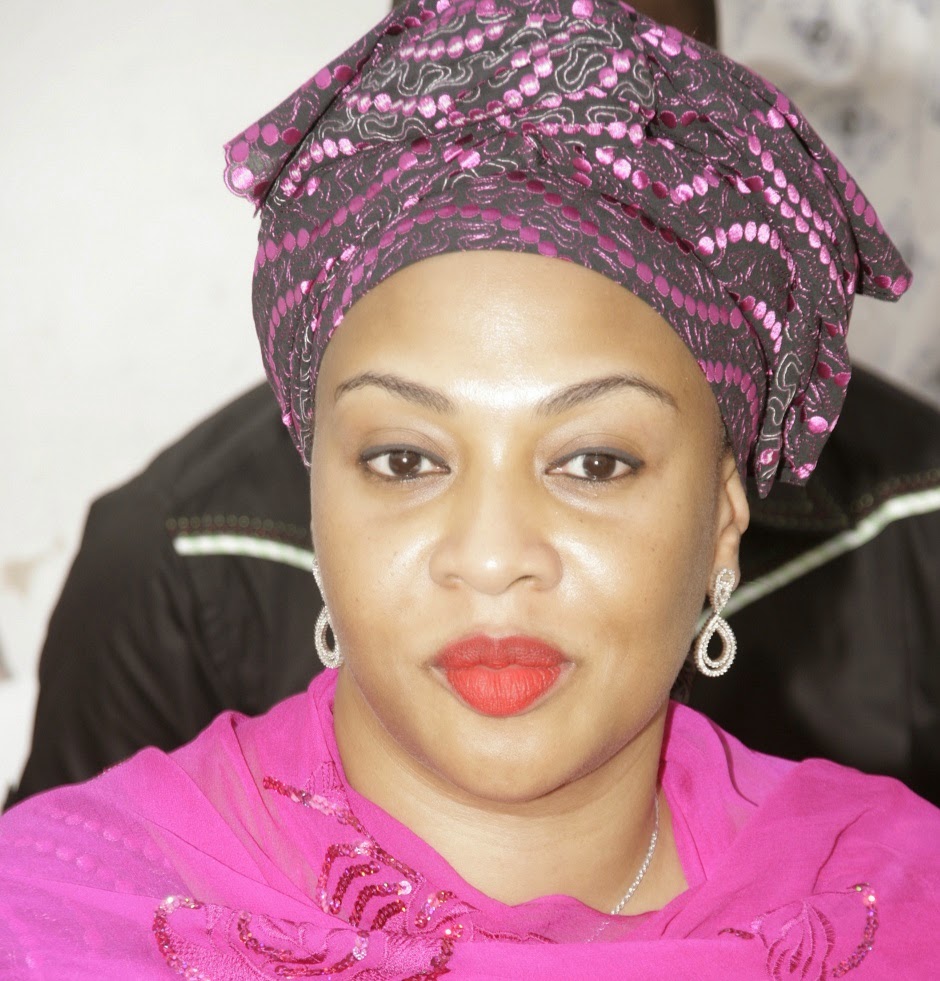The Minister of State for Transportation, Sen. Gbemisola Saraki, has called on developed nations to take interest in what happens in Nigeria and Africa.
In a statement issued by the Director of Press and Public Relations of the Ministry, Eric Ojiekwe, Saraki said there was the need for cooperation beyond our understanding of sovereign states.
She made the disclosure in Paris, France, at the Nigeria International Partnership Forum with the theme: “Building Excellence for the Future of Nigeria’s Transportation System: Reforms, Results and the Road Ahead.”
Read Also: Gbajabiamila, Reps minority caucus mourn slain Vanguard reporter Tordue Salem
According to her, how African nations tackle development through its policies and projects are not only beneficial to its citizens, but also reverberate positively or negatively on the global stage.
She explained that the world needs a new model of development and growth that is beneficial to all.
”The global community must be prepared to have these difficult conversations as ‘Closing the Continent’s huge infrastructural deficit’ is vital for the continent’s economic prosperity and sustainable development.
”Improved infrastructure will facilitate increased intra-regional trade, reduce the cost of doing business, enhance competitiveness, create employment, and reduce the tide of illegal migration.
”It is in recognition of these gaps that the President Muhammadu Buhari’s administration came up with the vision for economic recovery, diversification, and sustainability hinged on the Economic Recovery and Growth Plan (ERGP) initiative.
”And this focused on non-oil sectors such as Agriculture, Transportation, Industrialisation, Science, Technology, and Innovation (STI),” she said.
Saraki enumerated the successes recorded so far by the Nigerian government in the rail sub-sector to include a “25-year Strategic Plan targeted at the rehabilitation of all the existing narrow gauge rail lines.
She said there was construction of new standard gauge lines, connection to all Sea Ports, State Capitals, Mining and Agricultural clusters and technological hubs.
She said this had led to the commissioning of the Abuja-Kaduna; Warri–Itakpe and the Lagos–Ibadan rail lines, as well as the Wagon Assembly plant in Kajola, Ogun State.
”Of note too is the unbundling of the Nigerian Railway Corporation into four subsidiaries, namely: Regulatory, Infrastructure, Operations and Services.
”To optimise operations and costs; advance private sector participation; drive competition in the industry; enhanced service delivery for customers and improved infrastructure and other asset maintenance are important.
”Further more, the proposed rail projects will generate sustained freight growth of an average 7.9 per cent between 2021 and 2025, the minister noted.
In the maritime space, Saraki said the government had secured the Gulf of Guinea through the instrumentality of the Integrated Maritime Safety, Security Waterways and Environmental Protection Strategies, otherwise known as the Deep Blue Project.
She explained that this involves provision of Satellite and Communication Equipment, patrolling Assets and Capacity Building for the enforcement and intervention teams.
She said the International Maritime Bureau had on several occasions commended this initiative and in one of its reports it noted that the number of kidnapping and robbery in the Gulf of Guinea in the second quarter of 2021 was the lowest since 2019.
“While 33 incidents of piracy were reported in the last quarter of 2020, six cases were reported in the second quarter of 2021.
”Another success story is the Suppression of Piracy and other Maritime offences (SPOMO) Act, 2019; the very first of its kind in Africa of which other African nations have taken to study and replicate.
”It is aimed at securing timely prosecution of maritime offenders and since the promulgation of the Act, 12 cases have been successfully prosecuted and 10 convictions secured, “Saraki said.
In the road sub-sector, the minister said the government has upgraded the road stock by deploying innovative funding approaches for strategic road projects.
She said: “this includes the Presidential Infrastructure Development Fund (PIDF) which is investing over US$ 1 billion in three flagship projects.
”The projects are the Lagos-Ibadan Expressway, the Second Niger Bridge, Abuja-Kaduna-Zaria-Kano Expressway and the Highway Development and Management Initiative (HDMI) which is a public-private partnership programme to mobilize, in its first phase, over N1 trillion in private investment into the development and maintenance of 12 key roads of about 2,000 kilometers in length.”
Recognising that women are important in the chain of production, the Minister advocated that they be empowered as “gender inclusion are key to growth.
”The policies that are adopted by government must be mindful of the disproportionate challenges that women face due to infrastructural deficiencies, so that women become a critical component to economic recovery and growth.
”Engaging women and women-based enterprises on the supply and value chains of the infrastructural sector, must become an important part of the global ambition for post-pandemic recovery.
”After all, African women traditionally shoulder many family care responsibilities and, the frontline roles they played during the pandemic, exposed their resilience, vulnerability and the pivotal role women play in our societies,” she said.
Saraki also called for “Public-Private Partnership (PPP) in developing infrastructure and operations under a Sustainable Environmental condition in all modes of Transportation with a culture of timely maintenance of Transport Infrastructure. (NAN)

